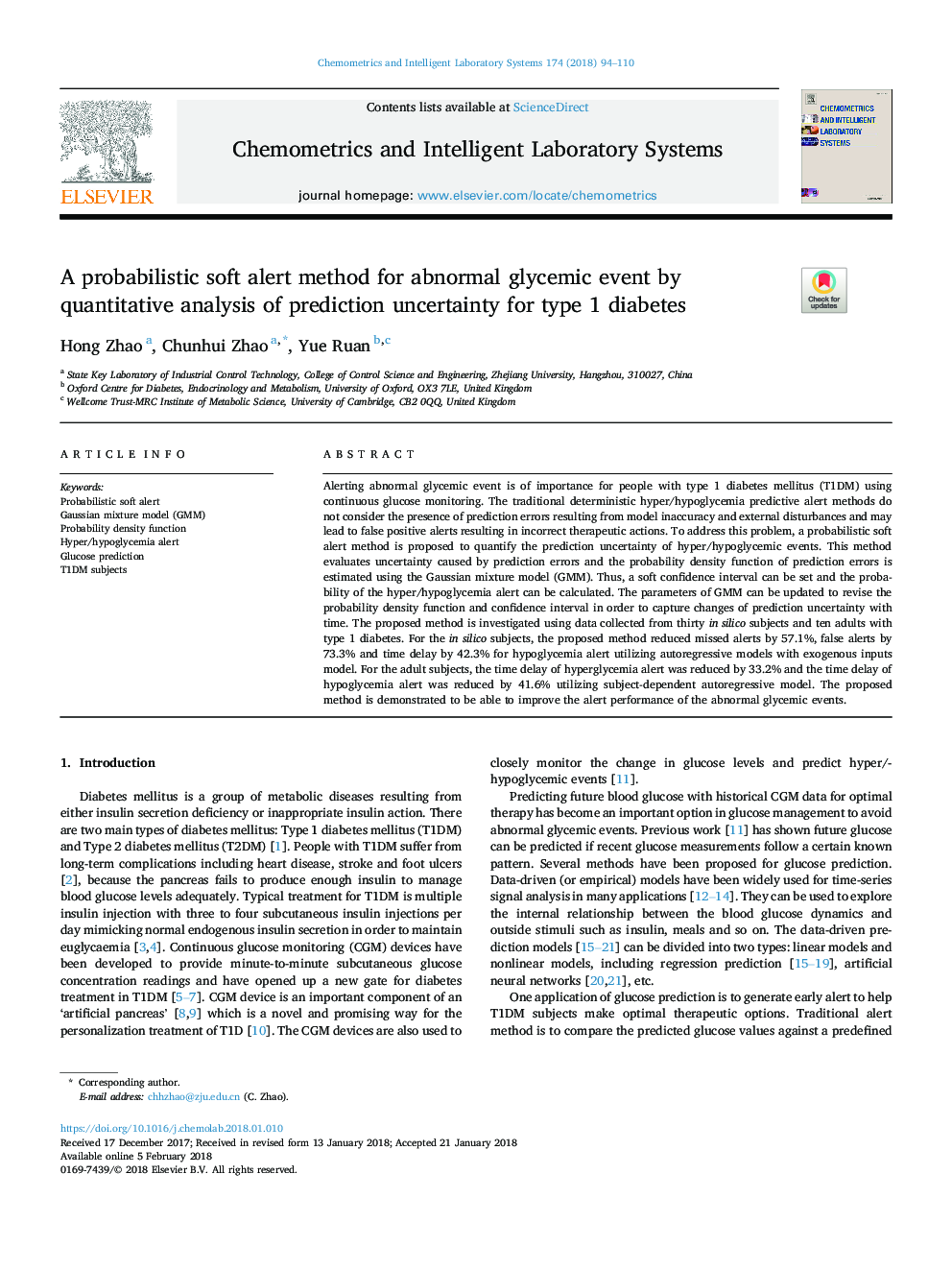| Article ID | Journal | Published Year | Pages | File Type |
|---|---|---|---|---|
| 7562199 | Chemometrics and Intelligent Laboratory Systems | 2018 | 17 Pages |
Abstract
Alerting abnormal glycemic event is of importance for people with type 1 diabetes mellitus (T1DM) using continuous glucose monitoring. The traditional deterministic hyper/hypoglycemia predictive alert methods do not consider the presence of prediction errors resulting from model inaccuracy and external disturbances and may lead to false positive alerts resulting in incorrect therapeutic actions. To address this problem, a probabilistic soft alert method is proposed to quantify the prediction uncertainty of hyper/hypoglycemic events. This method evaluates uncertainty caused by prediction errors and the probability density function of prediction errors is estimated using the Gaussian mixture model (GMM). Thus, a soft confidence interval can be set and the probability of the hyper/hypoglycemia alert can be calculated. The parameters of GMM can be updated to revise the probability density function and confidence interval in order to capture changes of prediction uncertainty with time. The proposed method is investigated using data collected from thirty in silico subjects and ten adults with type 1 diabetes. For the in silico subjects, the proposed method reduced missed alerts by 57.1%, false alerts by 73.3% and time delay by 42.3% for hypoglycemia alert utilizing autoregressive models with exogenous inputs model. For the adult subjects, the time delay of hyperglycemia alert was reduced by 33.2% and the time delay of hypoglycemia alert was reduced by 41.6% utilizing subject-dependent autoregressive model. The proposed method is demonstrated to be able to improve the alert performance of the abnormal glycemic events.
Related Topics
Physical Sciences and Engineering
Chemistry
Analytical Chemistry
Authors
Hong Zhao, Chunhui Zhao, Yue Ruan,
